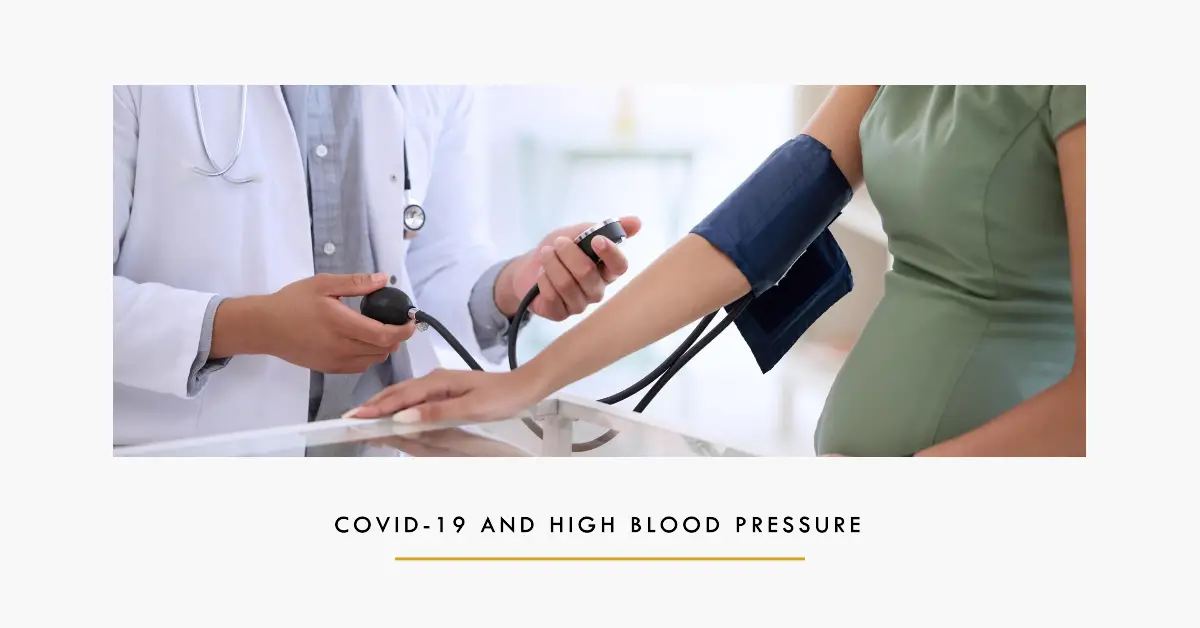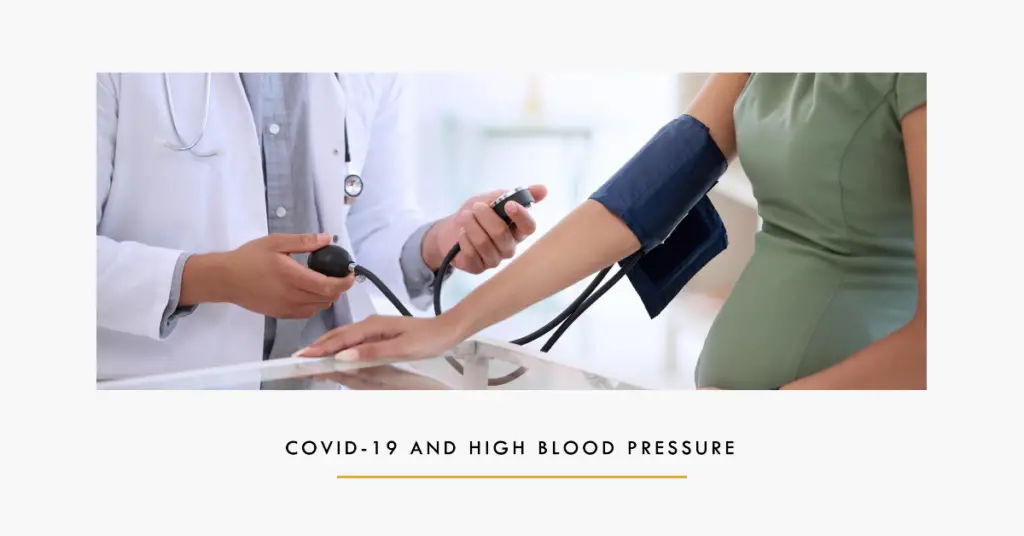
COVID-19 is a respiratory illness caused by the SARS-CoV-2 virus. It can cause a wide range of symptoms, including fever, cough, shortness of breath, and fatigue.
Some studies have shown that people who have been infected with COVID-19 are more likely to develop high blood pressure in the future. This is because COVID-19 can cause inflammation, which can lead to high blood pressure. It can also damage the lining of the blood vessels, which can make them more likely to narrow and restrict blood flow.

How COVID-19 can affect blood pressure:
There are two main ways that COVID-19 can affect blood pressure:
- Inflammation: COVID-19 can cause inflammation throughout the body, including in the blood vessels. This inflammation can lead to high blood pressure.
- Damage to the lining of the blood vessels: COVID-19 can also damage the lining of the blood vessels. This damage can make the blood vessels more likely to narrow and restrict blood flow. This can also lead to high blood pressure.
Risk factors for developing high blood pressure after COVID-19:
There are a number of risk factors that can increase your chances of developing high blood pressure after COVID-19. These include:
- Age: People over the age of 65 are more likely to develop high blood pressure after COVID-19.
- Underlying health conditions: People with underlying health conditions, such as diabetes or heart disease, are also more likely to develop high blood pressure after COVID-19.
- Severity of COVID-19: People who had a severe case of COVID-19 are more likely to develop high blood pressure after the infection.
How to manage high blood pressure after COVID-19:
If you have high blood pressure after COVID-19, it is important to see your doctor. They can help you manage your blood pressure and reduce your risk of complications. There are a number of things you can do to manage your high blood pressure, including:
- Make lifestyle changes: There are a number of lifestyle changes that you can make to help manage your high blood pressure, such as eating a healthy diet, exercising regularly, and quitting smoking.
- Take medication: If your blood pressure is not well-controlled with lifestyle changes, your doctor may prescribe medication to help lower your blood pressure.
What to do if you have high blood pressure after COVID-19?
If you have high blood pressure after COVID-19, it is important to see your doctor regularly. They will monitor your blood pressure and make sure that it is well-controlled. They will also talk to you about the best way to manage your high blood pressure.
Conclusion
COVID-19 can cause high blood pressure in a number of ways. If you have high blood pressure after COVID-19, it is important to see your doctor regularly. They will monitor your blood pressure and make sure that it is well-controlled. They will also talk to you about the best way to manage your high blood pressure.




